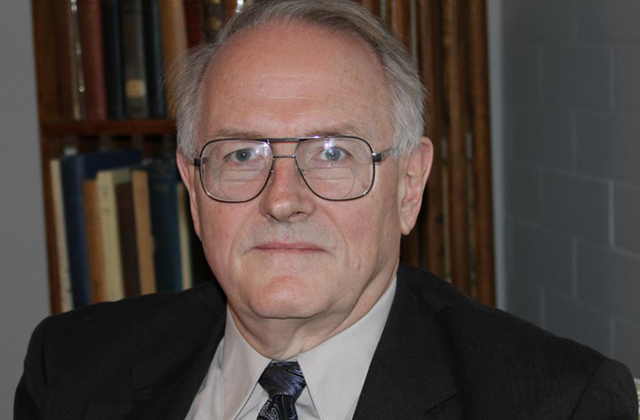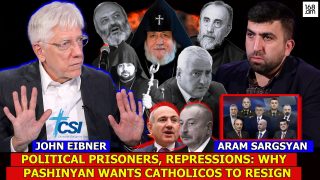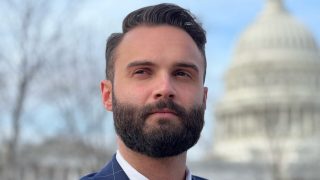
Washington will be paying less attention to NK conflict, than it did: Paul A.Goble

After the U.S. presidential elections on November 8, the newly elected president, Republican, billionaire Trump, his possible administration and anticipated foreign policy, in which approaches of Democrat candidate Hillary Clinton and od Donald Trump were considerably different, are in the focus of attention of the world’s expert community. “168 Hours” covered these issues with Paul A.Goble, special adviser to Secretary of State (1990s), prominent Analyst on Soviet Nationalities, presently Professor at the Institute of World Politics (IWP).
It’s noteworthy to mention, Paul A.Goble has worked as the Director of Research and Publications at Azerbaijan Diplomatic Academy (Minister of Foreign Affairs of Azerbaijan) for many years.
Mr. Goble as a result of the U.S. presidential elections on November 8 not only the president, but the ruling party has changed, which supposes certain changes of approaches in all the fields. What do you think what will be the Trump administration’s policy towards the South Caucasus and Russia? Is it correct to divide American politicians to Republicans and Democrats, when we talk about the U.S. foreign policy, in general, and the South Caucasus direction, in particular?
I think the most important thing to understand at least for the time being is that Washington is probably going to develop less attention to the South Caucasus where it has, then it’s going to be an issue decided by lower level officials, rather than senior ones. And consequently, there is likely to be less dramatic change than many people expect.
Over time, that may change, especially if there is a rearing of the geopolitics, e.g. with Azerbaijan becoming more important to Russia as a bridge to Iran. But I think Washington will be paying less attention to the South Caucasus at the highest level, than it was. I think we will probably see less efforts made to push the negotiation process over the Armenia-Azerbaijan dispute, and those, who are being positioned positively or negatively, that what’s going to happen are going to be proven at least in the next 12 months or so.
How do you explain the allegation that less engagement should be anticipated?
I think the reasons are very obvious. First, I think Trump administration is going to be vastly more focused on domestic affairs, than on foreign policy. I also think that what we’ve seen so far suggests that Mr. Trump even more than Mr. Obama is someone who believes that the world is so organized around various powers and that the U.S. should primarily deal with the major powers of the world, rather than with the lesser powers.
I would expect the Trump administration to pay more attention to Moscow, than the Obama administration has, and less attention to Russia’s neighbors. That doesn’t necessarily mean that there’s going to be a big change, but it does mean that those, who expect the Trump administration to record dramatic changes in the foreign policy, are probably going to be proven wrong in the shorter term.
Russian authorities, politicians, the expert community believe that Trump will lift sanctions and recognize Russia’s annexation of Crimea. On account of Trump’s all previous statements, what do you think, how will Russia-USA relations develop during the Trump’s stay in the Office?
I suppose it’s always useful for leaders to have a good relationship but there is a tendency among the journalists and among the public to overemphasize those personal ties as pursue of objective reality. It may very well be the case that the Trump administration will make big issue of Russia’s illegal inclusion of Crimea as major obstacle for talks with Moscow on other issues formerly, than the Obama administration did, but I think it’s almost given the arrangement of powers in Washington of the attitudes of the vast majority of the Republicans of Congress than the president Trump would ever formally recognize the inclusion of Crimea in the Russian Federation.
I think it may be a less nervousing point in relations between Washington and Moscow, but I think those, who are expecting that Trump will say Crimea is part of Russia alone, I don’t expect that to happen. With respect to sanctions I suspect that we’ll see softening but not an ending of the sanctions regime. There are certain realities that mean that the sanctions regime is something that will be very difficult for anyone, including president Trump, to end overnight just because he may have a positive view to Putin, than Obama did.
I think also we need the people to focus on something else. If president Trump carries through policies that he says on reindustrialization of the US, which supposes unlimited oil and energy production in the U.S., the consequences for the end also a massive public works program which will lead to a certain inflation and high interest rates in the U.S. Those three things along will work against Russia far more negatively than anything the sanctions regime has done so forth.
First, if the he imagines to produce more energy, the price will fall. If it falls to USD 20 per barrel, then Mr. Putin will far more appear in a bad condition. Second, if the U.S. becomes more isolationist, Putin may like that and weakening of American ties with Europe. But the consequences will be that money will flow out of the developing markets. And third, if indeed, Trump launched this massive prolific works program that he has talked about, that will have the consequences leading to some inflation, higher interest rates, and anyone who has money to for safe investments, prefers putting money in U.S. banks than by investing in Russia. The fact is the objective policy of the Trump administration will work very much against Russia, whatever the good feelings are between the two individuals.
Again coming to the Caucasus, let me clarify, do you consider that Trump’s presidency will be a productive period for Russia and Azerbaijan to settle NK conflict in favor of Azerbaijan, as there are grounded suspicions that Russia intends to attach Azerbaijan’s attention, join it to EEU, what do you think of this?
I’ve always said that the Russian position in the South Caucasus was well expressed by an Azerbaijani commentator some years ago, who said that in the South Caucasus Georgia is the way, Armenia is the weapon, and Azerbaijan is the price. If there is a shift in the direction of greater cooperation between Baku and Moscow I would expect the Russian tilt in the direction of Baku increase and I think that may have consequences for how the talks proceed about Karabakh.
I don’t expect the breakthrough, because I think that the Russian Government is quite capable of playing a double game and will want to get greater assurances that now has, that Azerbaijan is in Russian orbit. But clearly the opening of the railway linking Russia to Iran, to Azerbaijan ad president Aliyev’s statements about cooperation with Moscow and, of course, in Baku and other capitals, also that the U.S. is paying less attention to them, almost certainly will lead to a rapprochement between the Kremlin and Baku and to the extent that happens, Armenia will be more isolated and that will have consequences but talks, but again I don’t expect dramatic breakthrough in the next 6 months or a year.
By Araks Martirosyan




















